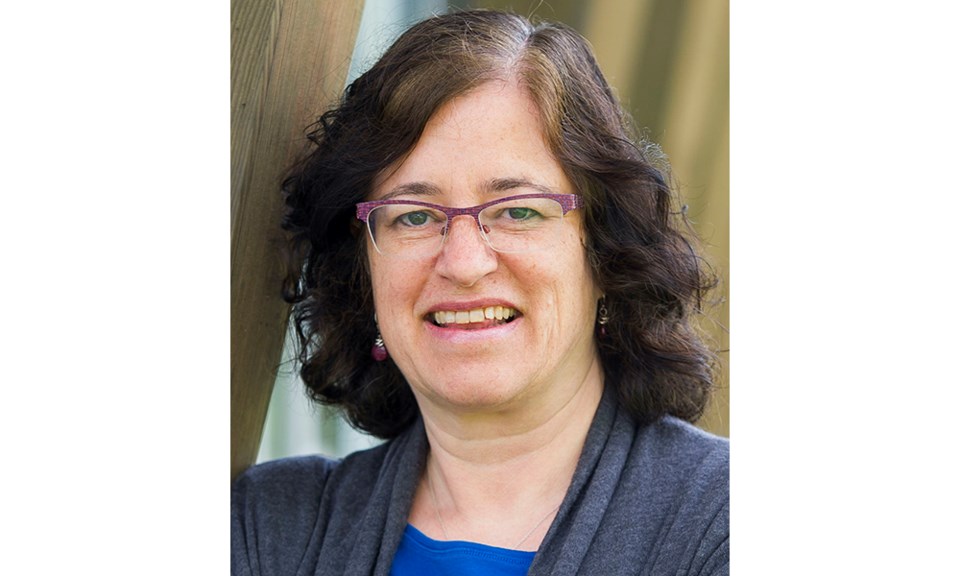There’s a growing movement to rename schools, to better reflect diversity and reconciliation. Toronto’s Ryerson University recently announced plans to change its name to Toronto Metropolitan University, away from being named after an individual, Egerton Ryerson, who was linked to residential schools. The names of all the K to 12 schools in Toronto are under review, for possible renaming, for similar reasons.
Richmond isn’t immune to this. In January, Richmond News reader Kim Nowitsky wrote a letter to the editor saying school names should be changed to better reflect the city’s diversity, especially since so many are named for white men. Her letter was in response to a News article by Maria Rantanen quoting Steveston resident Kelvin Higo, chair of the Steveston Japanese Canadian Cultural Advisory Committee (SJCCA), who approached the Richmond Board of Education to rename Byng elementary in Steveston after Hide Hyodo – who was Japanese and who taught at Byng before she was interned during the war — to reflect the contributions of the Japanese community in the area.
Rantanen’s article says the Richmond Board of Education is reviewing its school naming policy this year. Board chair Sandra Nixon told Rantanen that the idea is to have an updated process that’s “clear and transparent” and supports the school district’s commitment to “equity and specifically, to addressing bias, privilege and systemic discrimination.”
The B.C. Teachers’ Federation hosted a webinar late last month about renaming schools as an act of reconciliation. Two parents, Jen Arbo and Cheryl Sluice, and a student from New Westminster, Sam Killawee, spoke about their successful efforts to rename an elementary school in that city. The school was originally named for Richard McBride, an early B.C. premier, who advocated for a “white B.C.,” fought for anti-Asian laws and had a paternalistic attitude towards Indigenous people, the Dictionary of Canadian Biography says.
“He led the legislature in passing numerous anti-Asian measures such as taxes on companies that hired Chinese laborers and legislation denying the vote to Asians and Indigenous people,” Sluice said at the webinar.
She was drawn to act to change the school’s name after her child discovered this information while researching the school’s namesake.
Two Indigenous teachers, Peggy Janicki and Ryan Coleman, also spoke on the panel.
Richard McBride elementary was renamed Skwo:wech elementary. Skwo:wech is a Halkomelem word for sturgeon, a large fish common in B.C. waters.
“The sturgeon is older than the institutions on the land and has been a food source, a source of recreation and an important part of the ecosystem of the river,” Arbo said. “I kind of look at them like the old wise old creatures who've seen a lot. They're also a threatened species which helps embody the act of conservation for students.”
More than 250 names were suggested for the school, so parents drew up a rubric to choose a new name. The rubric was designed around questions, such as whether the suggested name contributes to decolonization or is consistent with the school district’s values, or whether it honours the land and local history, Arbo said.
Janicki, a BCTF executive member, said preserving Indigenous languages is an important goal, calling it “decolonization of the mouth.” The more we use Indigenous words, the more fluent we become. This makes sense to me: in Richmond there are two schools named for Indigenous words, Quilchena and Spul’u’kwuks elementary schools. I grew up in Vancouver, near Quilchena Park, so I’ve always known that word and didn’t even realize it was Indigenous. I remember when Spul’u’kwuks elementary school opened in 2000, I never thought I would be able to smoothly say the name. But now it rolls off my tongue! Decolonization of the mouth, for sure.
Coleman, who is Aboriginal district coordinator in the Langley School District, said if the process of choosing a new naming is done right it can create positive, transformative change.
“When you're choosing a name, I've been told that you don't actually choose it, that the name will choose you and I say that because if you go through the process and you have the consultations and you have the respectful relationships and through all of this mess something will arrive and rise to the top and that will be your name,” Coleman said. “Changing a name can be like planting a seed.”
Changing a school’s name can indeed be an act of reconciliation, if it’s done correctly and thoughtfully, including Indigenous voices, students and the community.
We never know what all of the outcomes of our actions will be. Maybe planting the seed of a name change will lead to even bigger change and opportunities for reconciliation down the road. Our world is changing and that change can make us uncomfortable, but it can also make us proud.
Tracy Sherlock is a freelance journalist who writes about education and social issues. Read her blog or email her [email protected].



